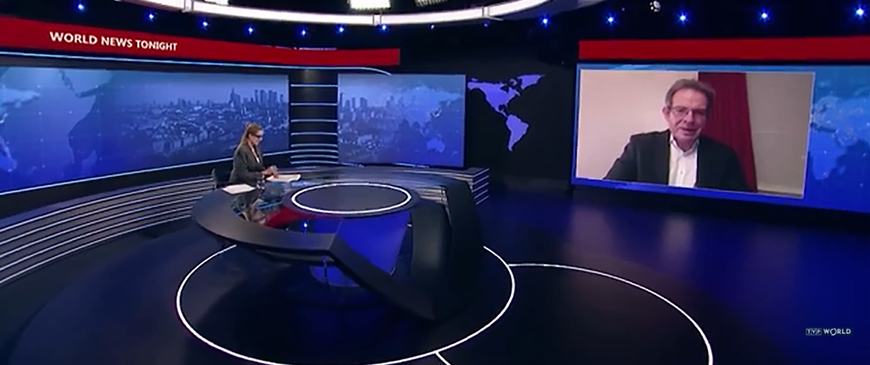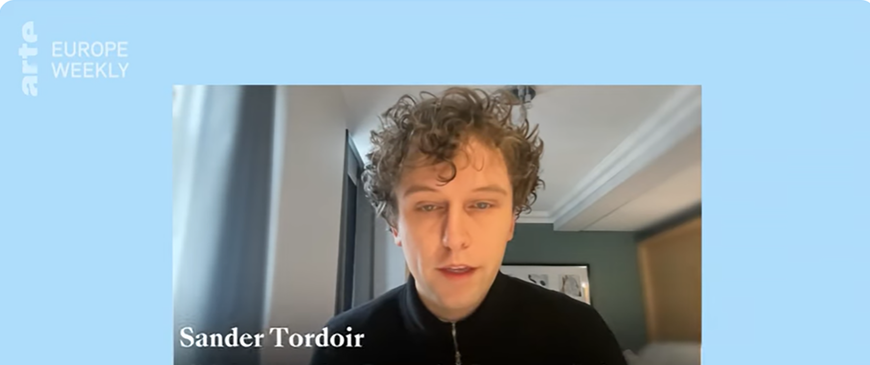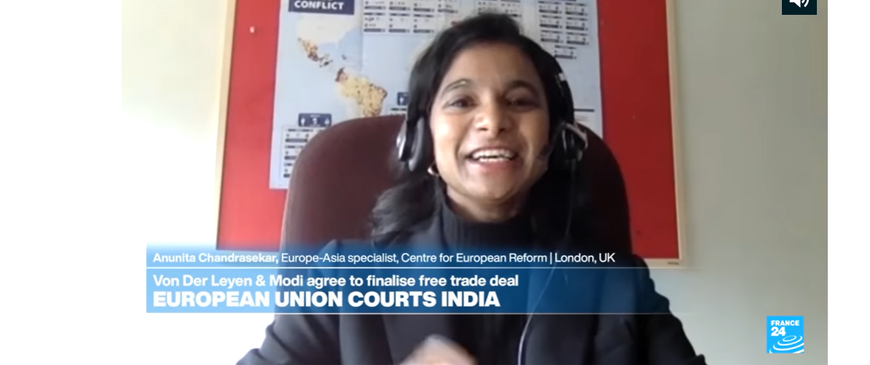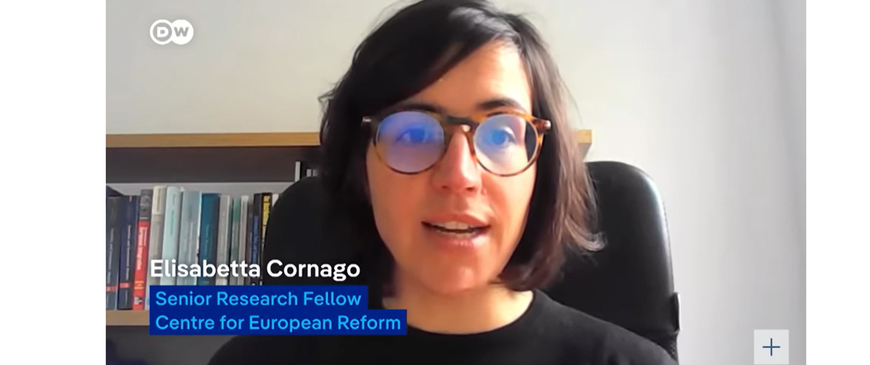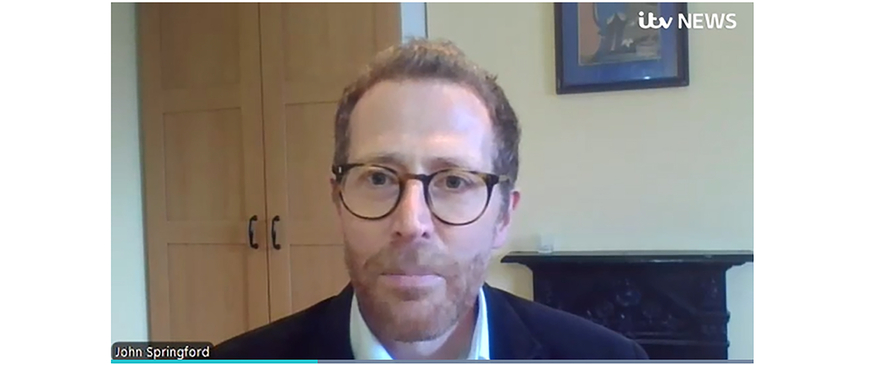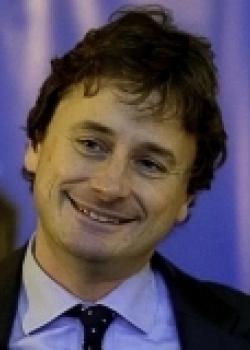Press
The next European crisis: boat people
11 April 2011
The Economist
Migration is likely to be a contentious issue at June's European summit (see this paper by the Centre for European Reform). With anti-immigrant parties on the rise across Europe, the dispute has great potential to degenerate.
In Portugal crisis, worries on Europe's 'debt trap'
08 April 2011
New York Times
"What has been missing, in the debate about how countries can restore their finances to some kind of sustainability, is the limit of how much they can cut in a period of austerity," said Simon Tilford, chief economist for the Centre for European Reform in London. "There is a limit of how much any government can cut back spending and survive politically unless there is a light at the end of the tunnel, a route back to economic growth.
The EU needs to woo Israel if it’s to be a peacemaker
01 April 2011
Europe's world
Sharon Pardo highlights a number of important ways in which the EU can support the Middle East peace process, not least by encouraging internal Palestinian reconciliation. But if the EU wants to play a larger role in the peace process it also needs to improve its image in Israel.
...
...
Paris and London torpedo EU foreign policy
31 March 2011
La Stampa
Notwithstanding questions about their commitment to European policies in foreign affairs and defence, France and the United Kingdom have succeeded in monopolising most of the key jobs in the European External Action Service (EEAS), which is increasingly aligned with positions adopted in London and Paris.
Europe's not so eternal triangles
31 March 2011
Financial Times
Charles Grant, the director of the London-based Centre for European Reform, suggests that Britain and France could form the core of a series of coalitions of the capable. Smaller nations such as Denmark and the Netherlands have shown a willingness to deploy military muscle. Spain, Poland and some others could be occasional members of such coalitions.
Euro-pact plus decision carries hidden threat
30 March 2011
Financial Times
Charles Grant, director of the Centre for European Reform, is among those who believe that this month’s EU summit in Brussels might have been a fork in the road. "If you're not in the room, your influence is diminished", he said... Mr Grant worries that once 23 leaders out of 27 start to hold regular meetings, they will inevitably start to "caucus" on issues relating to the EU's single market, regardless of undertakings to the contrary.
ANALYSIS - EU states back "euro pact" despite deep concerns
24 March 2011
Reuters
"Over time a two-speed Europe looks unavoidable," said Simon Tilford of the Centre for European Reform in London. "Going forward, there will have to be closer integration and that inevitably means countries that are determined to stay out risk seeing their influence within the EU erode."
Disputes on Euro rescue risks marring summit
23 March 2011
New York Times
"They haven't grasped what they have to do in terms of restructuring and recapitalising the banks," said Charles Grant, director of the Centre for European Reform, a research institute. "They are behind the markets. Public opinion in Ireland and Greece on the one hand, and Germany and Netherlands on the other, is going in incompatible directions," Mr Grant said. "There may be a time when, even if politicians want to do the right things for the euro, public opinion will not allow them to."
Libya's lesson for Europe
16 March 2011
The American Spectator
Charles Grant, director of the Centre for European Reform, complained: "On many of the world's big security problems, the EU is close to irrelevant. Talk to Russian, Chinese or Indian policy-makers about the EU, and they are often withering. They view it as a trade bloc that had pretensions to power but has failed to realise them because it is divided and badly organised."
Briefing: Time for the US and EU to lift arms embargoes against China?
15 March 2011
Jane's Defence Industry
Charles Grant, director of London-based think-tank the Centre for European Reform, told Jane's: "I think the French genuinely hope to get contracts out of it [Lifting the EU arms embargo on China]. They've had an arms export driven foreign policy for years." UK policy on the EU ban "has gone back and forth", he added. The US remains "the key" to any future change in EU policy, according to Grant: "There's no chance of it being lifted in the near future because the Americans don't want it to be.
EU unites against Gaddafi, but not on what's next
11 March 2011
Time
Charles Grant, director of the London-based Centre for European Reform, says this is a chance for the EU to offer parts of the Arab world more money, markets and mobility — but to tie those benefits to progress on democracy and human rights. "If the EU wants to influence its neighbours it will need to increase its offer to them. What should be clear in the new neighbourhood policy, however, is that only countries which reform their political systems will enjoy the closest relations with the EU."
Libya conflict leaves EU diplomacy struggling
11 March 2011
Monsters and Critics
"The EU policies just aren't mature enough or aligned enough to absorb this kind of crisis," says Hugo Brady of the Centre for European Reform, a think-tank in London. "They're still in learning mode. The Europeans can't find a common line on Russia, so I don't find it so hard to believe they can't find a common line on Libya," said Brady. "Everybody takes their stand, then the event actually happens, then the EU cobbles together a policy based on the country's version that was most right, But the first principle of their action should be like the Hippocratic oath: first do no harm.
EU summit to take only minor steps on debt crisis
08 March 2011
Reuters
"The competitiveness pact as it stands is largely meaningless, it's beside the point right now," said Simon Tilford, chief economist of the Centre for European Reform, a London-based think-tank. "The immediate issue is debt restructuring and bank recapitalisation and they're not dealing with that. The wiggle room, the political room for manoeuvre on the part of the Germans, is worryingly limited," said Tilford.
Analysis - "Little Britain" stands back as eurozone advances
07 March 2011
Reuters
"One of the most potentially damaging things is the impact on the balance of economic philosophy within the Eurogroup," said Charles Grant, director of the Centre for European Reform. "Without Britain, Sweden, Denmark or Poland, the whole thing will become more corporatist. Cameron is probably learning that he has got to work through Europe on a lot of issues, for example to reform the EU neighbourhood policy towards north Africa," Grant said. "But the risk is that you get a Britain that is half in and half out of the EU.
Portugal hovers on the verge of crisis as eurozone argues over integration
06 March 2011
The Guardian
"In the short term, the existential threat is the financial crisis. Dealing with that will have to involve reducing the debt burden on the three small states [Greece, Ireland and Portugal], and moving to recapitalise the banks in the periphery, and in the core", says Simon Tilford, chief economist at the Centre for European Reform.
Could defence cuts hobble Europe's response to Libya?
06 March 2011
Time
Clara Marina O'Donnell, a research fellow at the Centre for European Reform, says European defence capabilities have actually been diminished since they took part in NATO's 1995 bombing campaign in Bosnia. "Europeans would be not be prepared for any intervention in Libya now. They cannot deliver on action. In fact, Europe could [probably] not do Bosnia again", she says.
Worries abound that fixes for crisis will under-deliver
04 March 2011
The Wall Street Journal
In fact, said Philip Whyte of the Centre for European Reform, "the word competitiveness seems to have become a substitute for that of imbalance." It is the eurozone's imbalances — the big current-account surpluses run by Germany and the other core economies and the big deficits being run by the peripheral economies — that he sees at the root of the eurozone's problems.
Analysis: Ireland's new government has little time to prove itself
27 February 2011
CNBC
"We are in a moment of maximum danger on that," said Hugo Brady, senior research fellow at the Centre for European Reform. "We are hamstrung in the language of Brussels because we are askers and in the logic of Brussels askers have to give something."
Europe faces risks with unrest in Arab world
17 February 2011
Reuters
"The European Union has been struggling to find an appropriate policy to apply to North Africa and the Middle East," said Clara O'Donnell of the Centre for European Reform. "We are really at a point where there will be lots of difficult questions and I think right now the EU is clearly uncertain how it's going to address them." ..."There is a risk that things go very badly," said O'Donnell.
Cameron warned against two-speed Europe
15 February 2011
Financial Times
David Cameron, Britain’s prime minister, has been warned by his coalition allies that he risks side-lining Britain in a two-speed Europe if he adopts an “empty chair” policy while eurozone countries led by France and Germany take key economic decisions - Charles Grant, director of the Centre for European Reform, argues: "You do lose influence if you're not in the room. We have a strong interest in making sure we have a say and influence decisions."

